Abstract
Sixty subjects were exposed to cigaretts smoke produced by a smoking machine in a climatic chamber. The irritating effects were recorded by questionnaire and related to concentrations of CO, formaldehyde, and acroleine. The eyes are most sensitive to these irritants, followed by the nose. Annoyance about air quality, and the desire to open the window or to leave the room proved to be other useful measures of sensitivity. With smoke produced by 10 cigarettes/30 m3 acroleine reaches 0.1 ppm, the threshold limit value for industries; simultaneously, CO and formaldehyde exceed the clean air standards for outdoor air. At this exposure level. 9 per cent of the subjects show a strong or very strong eye irritation, while 78 per cent "wish to leave the room." The most important of the measured irritants seems to be acroleine.
Full text
PDF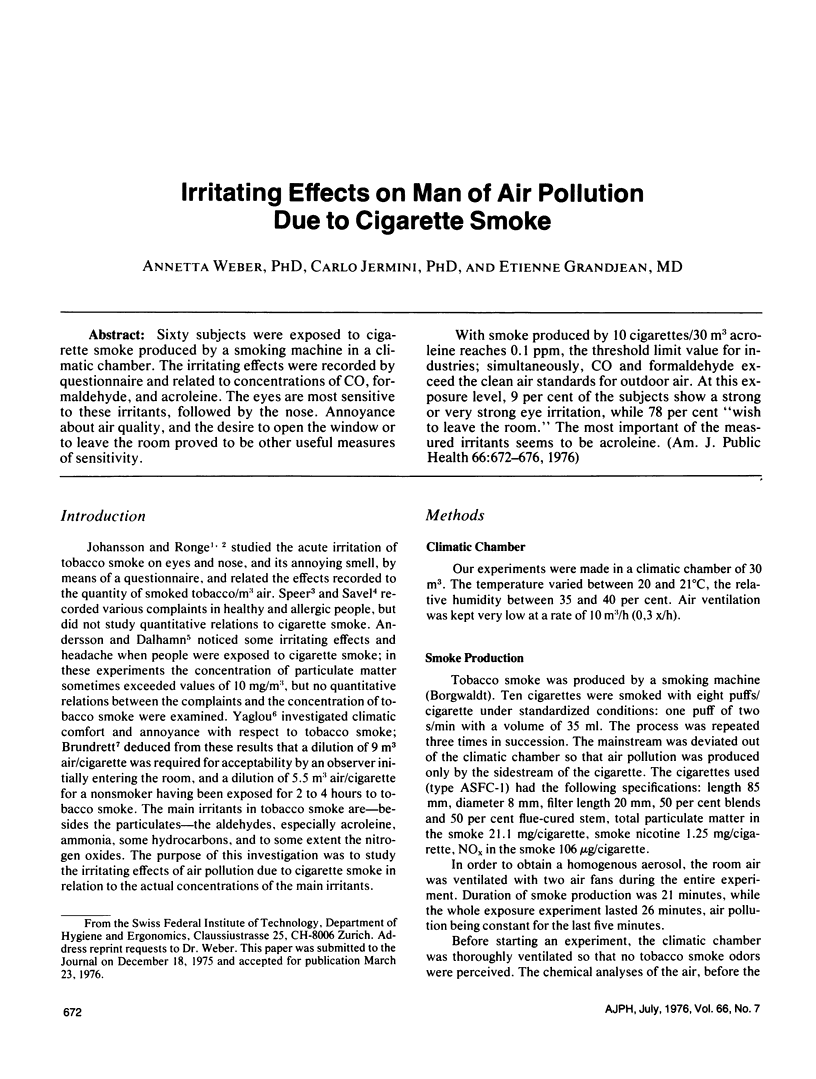
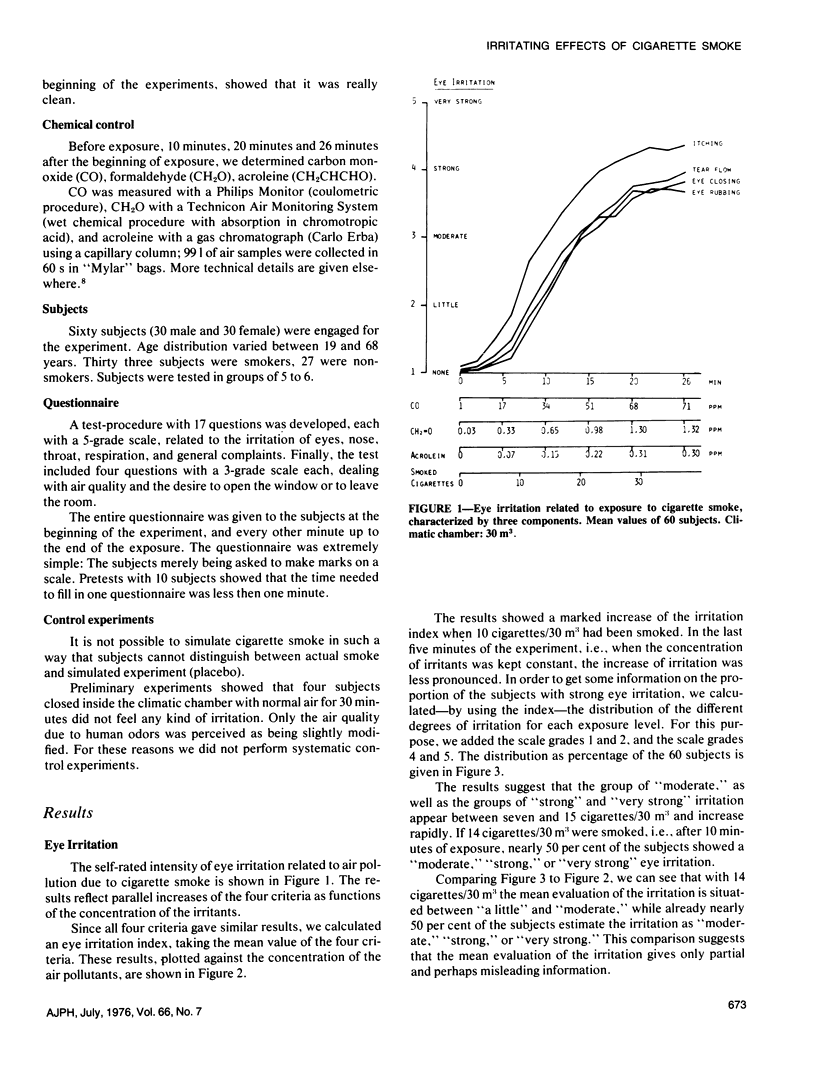
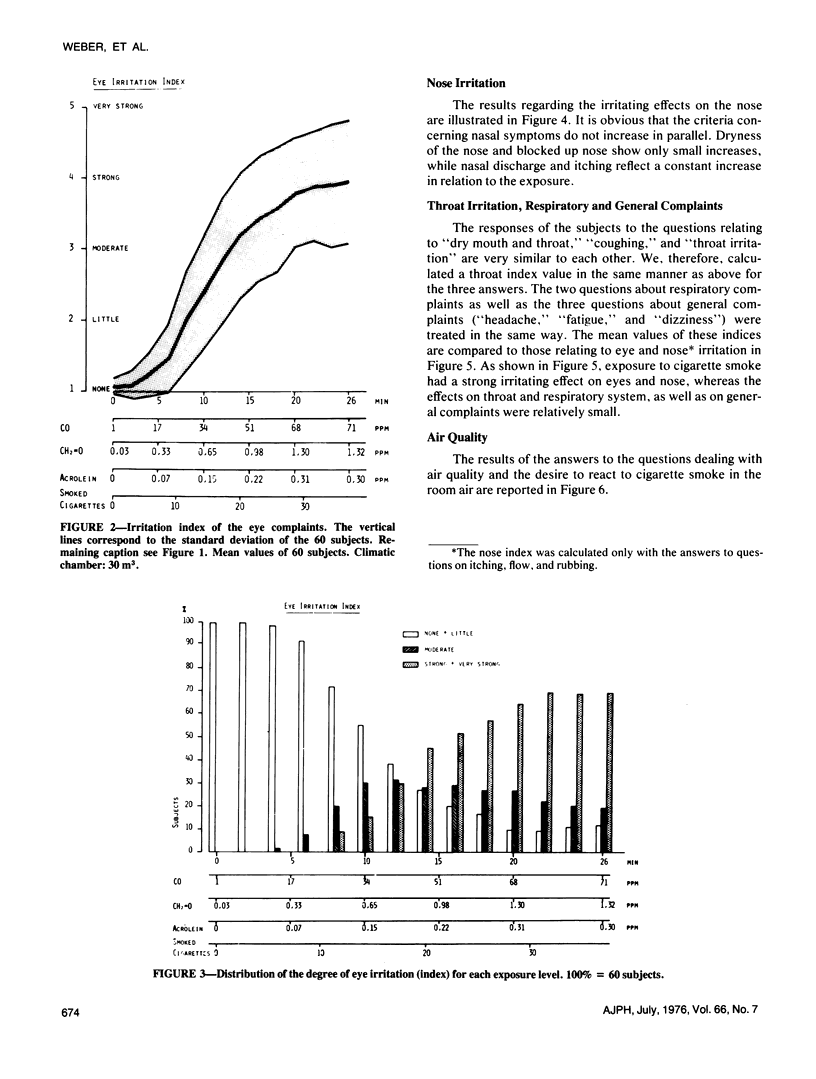
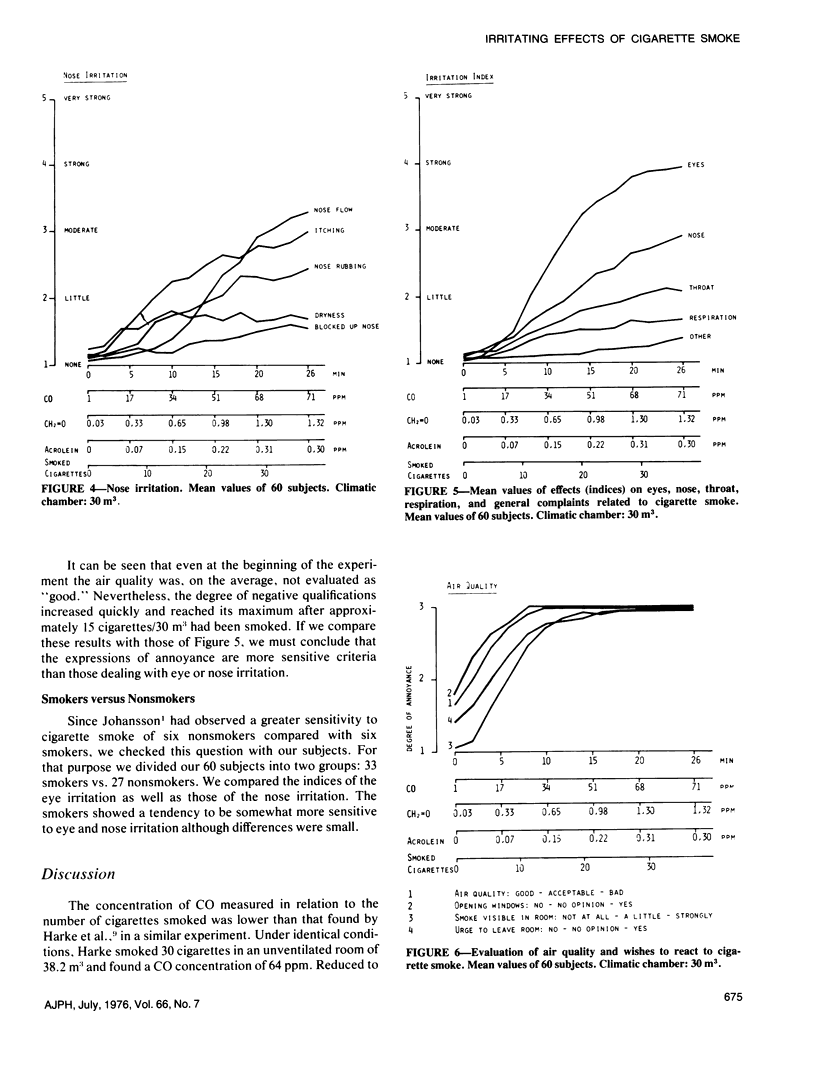
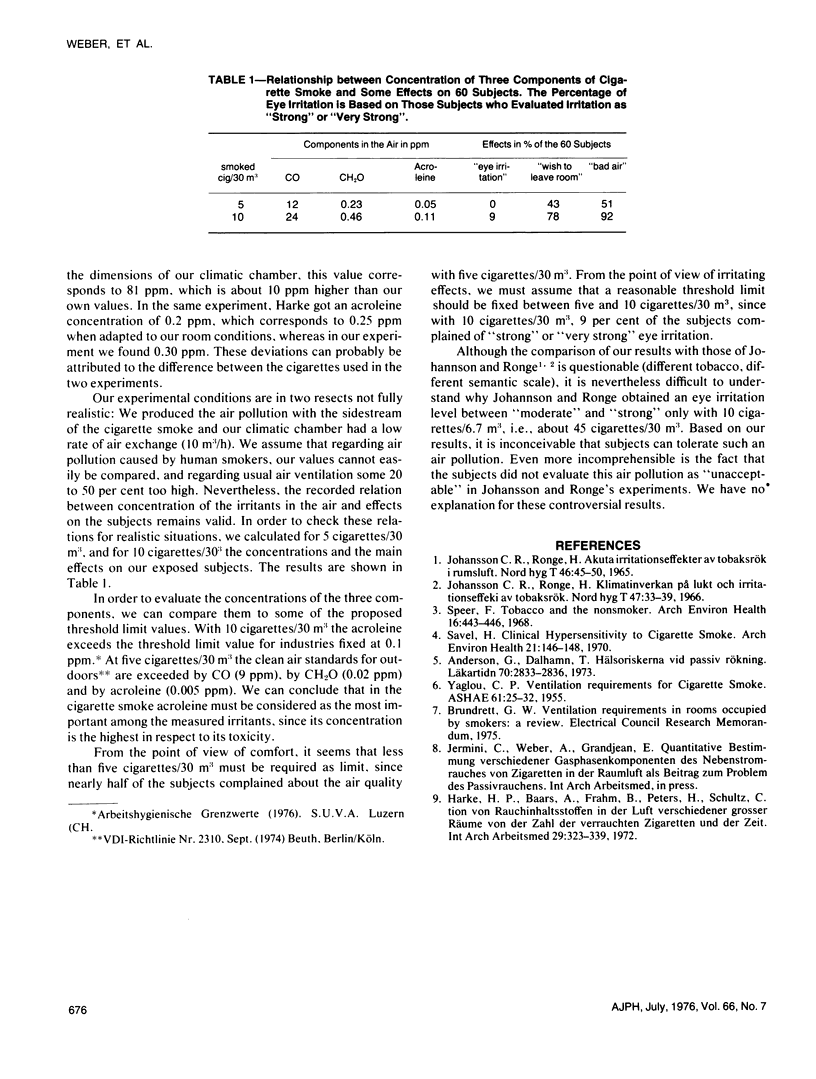
Selected References
These references are in PubMed. This may not be the complete list of references from this article.
- Anderson G., Dalhamn T. Hälsoriskerna vid passiv rökning. Lakartidningen. 1973 Aug 15;70(33):2833–2836. [PubMed] [Google Scholar]
- Harke H. P., Baars A., Frahm B., Peters H., Schultz C. Zum Problem des Passivrauchens. Abhängigkeit der Konzentration von Rauchinhaltsstoffen in der Luft verschieden grosser Räume von der Zahl der verrauchten Zigaretten und der Zeit. Int Arch Arbeitsmed. 1972;29(4):323–339. [PubMed] [Google Scholar]
- Johansson C. R., Ronge H. Klimatinverkan på lukt och irritationseffekt av tobaksrök. Preliminärt meddelande. Nord Hyg Tidskr. 1966;47(1):33–39. [PubMed] [Google Scholar]
- Savel H. Clinical hypersensitivity to cigarette smoke. Arch Environ Health. 1970 Aug;21(2):146–148. doi: 10.1080/00039896.1970.10667212. [DOI] [PubMed] [Google Scholar]
- Speer F. Tobacco and the nonsmoker. A study of subjective symptoms. Arch Environ Health. 1968 Mar;16(3):443–446. doi: 10.1080/00039896.1968.10665084. [DOI] [PubMed] [Google Scholar]


